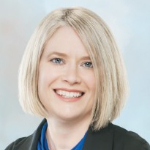 The industry event anyone in secured finance attends now celebrates its 77th year. SFNet is set to make the Arizona convention a memorable one. Click below to register.
The industry event anyone in secured finance attends now celebrates its 77th year. SFNet is set to make the Arizona convention a memorable one. Click below to register.

Heidi Ames
SVP/ Account Executive, North Mill Capital
Biography:
Heidi Ames, senior vice president and account executive, has been with North Mill Capital LLC for six years. Prior to that she worked at Santander Bank as a field examiner and Business Alliance Capital Corp. as a collateral analyst. She has risen through the ranks of asset-based lending through hard work and persistence.
She began her career in lending as a collateral analyst, posting daily borrowing base certificates, reconciling collateral and calculating ineligibles. She was promoted to field examiner and was not bashful to request needed information and dig deeply. During her years as a collateral analyst and field examiner she managed to find time to pursue a college undergraduate degree as well as a graduate degree. Over the last six years she has transformed from field examiner, to one of our most senior account executives, handling workouts as well as a full portfolio load of accounts. Whether liquidating accounts, underwriting new business or handling accounts, Heidi is tenacious and relies on her gut instincts as well as her well-disciplined collateral focus approach.
Heidi lives in Flemington, NJ, with her husband, Dave, and daughter, Devon. She has been active with the NJ SFNET Board and currently serves as its vice president and is an active member of East Amwell Township’s School Parent Teacher Organization. She received her Master of Science in management/organizational change as well as her Bachelor of Science in management from the College of Saint Elizabeth.
What advice would you offer to women just starting out in the industry?
Learn as much as you can and do not get discouraged. It is very important that you surround yourself with others in the industry who want to help you expand your knowledge. Don’t be afraid to keep asking a question if you do not understand. I recommend starting out in the operations and field exam areas, as it will give you an opportunity to understand the industry from the ground up. I took a job as an administrative assistant to a portfolio manager and from there moved through operations, field exam and credit. You will find a lot of the current leaders in our industry started out at the bottom and worked their way up. For me it was beneficial to work in the collateral area first, as it allowed me to understand reporting requirements for us as a lender and the client as a borrower. This was further enhanced when I became a field examiner even though my major was not in accounting.
What do you know now that you wish you knew in the beginning of your career?
That you will never know it all. In my 17 years, I find myself continuing to learn in this industry. A lot of my experience comes from day-to-day, hands-on experience. It is also important to learn about our customer’s business by going out and meeting with them face-to-face. All the underwriting documents in the world can’t give you the flavor of the business without taking a tour of the facility and meeting with your customer in person. Not every borrower is alike even if they are in the same industry and, furthermore, each industry has its in own nuances.
What kind of role has mentoring and/or sponsorship played in your career?
I have been very fortunate to work with a group of seasoned ABL lenders that have been willing to share their experience and knowledge with me and present me with opportunities that help me to learn and grow in my career. This year I was asked to be a mentor as part of the SFNET mentoring program which allows me to share my experience in lending and pay it forward.
What do you think the industry could do to attract and retain the best and the brightest today?
The industry should continue to focus on programs that allow for exposure and training in all of the ABL/factoring areas. I truly believe the reason I could excel in my career was that I was able to work in collateral management, field exam, underwriting, account management and workout. This foundation to me was the key to my success. I think the industry should offer internships which will allow us to enhance the development of our future leaders before graduating from college. This was a pattern that banks had offered through a credit training program that has become less available to those entering our industry.
77th Annual Convention
 The industry event anyone in secured finance attends now celebrates its 77th year. SFNet is set to make the Arizona convention a memorable one. Click below to register.
The industry event anyone in secured finance attends now celebrates its 77th year. SFNet is set to make the Arizona convention a memorable one. Click below to register.
